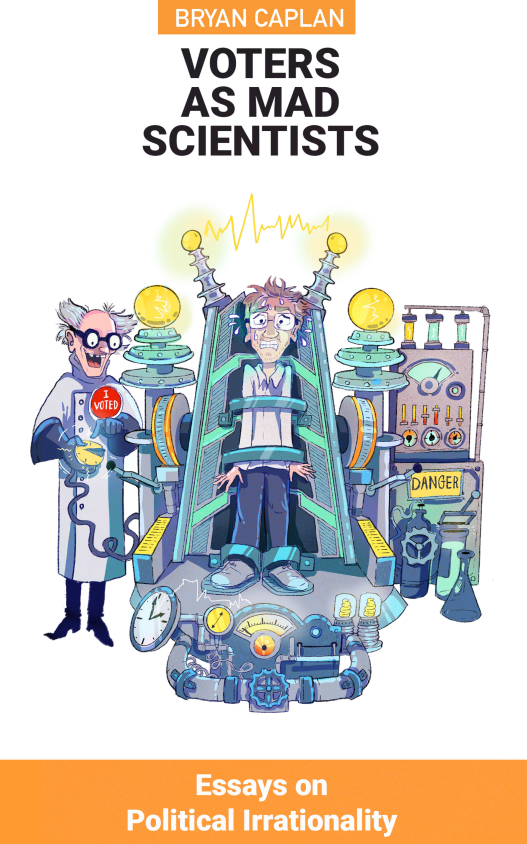Voters as Mad Scientists: Essays on Political Irrationality
 Bryan Caplan’s latest collection of essays, Voters as Mad Scientists: Essays on Political Irrationality is out and, as the kids say, it’s a banger. Voters as Mad Scientists includes classics on social desirability bias, the ideological Turing test, the Simplistic Theory of Left and Right and more. Lots of wisdom in these short essays. Bryan is a pundit who writes for the long run. Here’s one on the historically hollow cries of populism:
Bryan Caplan’s latest collection of essays, Voters as Mad Scientists: Essays on Political Irrationality is out and, as the kids say, it’s a banger. Voters as Mad Scientists includes classics on social desirability bias, the ideological Turing test, the Simplistic Theory of Left and Right and more. Lots of wisdom in these short essays. Bryan is a pundit who writes for the long run. Here’s one on the historically hollow cries of populism:
History textbooks are full of populist complaints about business: the evils of Standard Oil, the horrors of New York tenements, the human body parts in Chicago meat packing plants. To be honest, I haven’t taken these complaints seriously since high school….Still, I periodically wonder if my nonchalance is unjustified. Populists rub me the wrong way, but how do I know they didn’t have a point? After all, I have near-zero first-hand knowledge of what life was like in the heyday of Standard Oil, New York tenements, or Chicago meat-packing. What would I have thought if I was there?
Yet, Bryan continues, there is a test. What do populists say about the technological revolutions of the 2000s which Bryan has seen with this own eyes?
I’ve seen the tech industry dramatically improve human life all over the world.
Amazon is simply the best store that ever existed, by far, with incredible selection and unearthly convenience. The price: cheap.
Facebook, Twitter, and other social media let us socialize with our friends, comfortably meet new people, and explore even the most obscure interests. The price: free.
Uber and Lyft provide high-quality, convenient transportation. The price: really cheap.
Skype is a sci-fi quality video phone. The price: free. YouTube gives us endless entertainment. The price: free.
Google gives us the totality of human knowledge! The price: free.
That’s what I’ve seen. What I’ve heard, however, is totally different. The populists of our Golden Age are loud and furious. They’re crying about “monopolies” that deliver fire-hoses worth of free stuff. They’re bemoaning the “death of competition” in industries (like taxicabs) that governments forcibly monopolized for as long as any living person can remember. They’re insisting that “only the 1% benefit” in an age when half of the high-profile new businesses literally give their services away for free. And they’re lashing out at businesses for “taking our data” – even though five years ago hardly anyone realized that they had data.
My point: If your overall reaction to business progress over the last fifteen years is even mildly negative, no sensible person will try to please you, because you are impossible to please. Yet our new anti-tech populists have managed to make themselves a center of pseudo-intellectual attention.
Read the whole thing and follow Bryan at Bet On It.